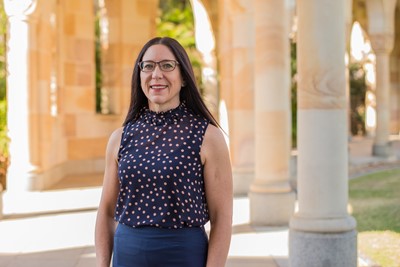Regional Innovation
- Economic Tools
-
Regional Innovation
- Ag Tech & Innovation
- Quilpie WellSpring: a circular economy concept for remote and arid regions
- Mutual ownership solutions for regional infrastructure innovation
- Creating a regional innovation ecosystem: the Goondiwindi case study
- Innovation PhD Project: Technology adoption in vegetable value chains
- Innovation PhD Project: Waste stream development in vegetable supply chains
- Farm Economic Diversification
- GTAG
-
Policy Development
- Policy development for regional Queensland
- QLD Rural & Regional workforce policy analysis
- Connectivity & inclusion in regional and rural communities
- Population policy for regional and rural Queensland
- Leveraging digital development in regional and rural Queensland: Policy Discussion Paper
- Social Dynamics in Rural Community
-
Value Chains
- Value Chain Analysis: three case studies
- Aquaculture supply & value chains
- Consumer Demand for Beef – Assessing credence factors for environment, health & animal welfare
- Evaluation of hybrid-cooperative model for horticulture: A case study of Tropical Pines
- Supply Chains of the Sheep and Goat Meat Industry
- Local Consumer Demands and Domestic Supply of Sheep and Goat Meat
- Translation & Engagement
- PhDs & Post Grads
- Future Drought Fund
Mutual ownership solutions for regional infrastructure innovation
Background and Issue:
The concept of mutual ownership as a catalyst for regional growth and self-sufficiency, is
under explored in Queensland. Mutual ownership of infrastructure and/or equipment, led by primary
producers or community groups, has the potential to drive regional digital innovation, and to
facilitate the adoption of agtech and sound agriculture practices across a range of industries.
This project seeks to develop new business models and funding alternatives for mutual ownership of
infrastructure in regional Queensland.
As a starting point, the project will use cluster fencing as a case study of mutual ownership. In
Central West Queensland, mutual (shared or collaborative) ownership of cluster fencing
infrastructure is applied as part of a resilience strategy, to increase sheep numbers and create
sustainable agriculture jobs to retain families in the region that has experienced out-population
due to prolonged drought conditions.
The Remote Area Planning and Development Board (‘RAPAD’), a representative organisation of the seven local councils of Barcaldine, Barcoo, Blackall-Tambo,
Boulia, Diamantina, Longreach and Winton in Central West Queensland, is currently leading a
project to cluster fence sheep properties across the region as an effective strategy against wild
dog predation that remains a significant challenge for the sheep industry in Central West
Queensland. The 10-year goal of the project is to increase sheep number from 450,000 to 1 million
by fencing 8.5 million hectares. To date, 124 landholders have contributed $6.5 million to erect
cluster fences, and 1.16 million hectares have been fenced.
Every cluster fence which is erected, requires cooperation between producers, and participation is
premised on access to funding. Therein lies valuable lessons that can be applied to broaden the
application of mutual ownership models.
Cooperation between landowners. Cluster fencing is intrinsically collaborative. Cluster fencing one
property, while adjacent properties are unprotected, is ineffective. However, landowners do not
bear the same burden when they cooperate. Properties are unequal in size, participants have varying
skills and means to take responsibility for ongoing maintenance, and apply different farm practices
that may impact the efficacy of cluster fencing. In the event that a property is sold, there is
also a risk that a new landowner may not want to participate or cooperate. Beyond cluster fencing,
the investment horizons of participants who have mutual ownership of moveable infrastructure assets
may differ, resulting in conflict about the sale of mutually owned assets. This project will
develop new mutual ownership business models that address the risks for participants and formalise
their mutual rights, using a flexible approach.
Principal researcher: Dr Thea Vogt
Dr Thea Voogt is a Senior Lecturer at the TC Beirne School of Law at The University of Queensland (UQ).
Thea specialises in corporate governance theory, and corporations and taxation law. She is a chartered accountant (CA ANZ), and holds a Doctorate in Financial Management and Master of International Commercial Law (UQ) .
.
Her research is focuses on three areas:
- Small firm and small family firm business structures, with a particular focus on family farming, regional businesses and discretionary trusts.
- The impact of Income Tax Law on small businesses and agriculture.
- Corporate governance theory and the duties, roles, responsibilities and skills of directors in listed companies.
She is an active researcher is Central West Queensland where she spends a quarter of her time:
https://www.rapad.com.au/research/
https://www.rfcsnq.com.au/services/programs/
https://www.linkedin.com/pulse/income-tax-decoding-nw-my-arm-thea-voogt-ca-d-com-/
Thea is an award-winning teacher. She is the 2017 recipient of the prestigious UQ Business, Economics & Law Faculty Teaching Award for her innovative, technology-driven approach to teaching the law. She also received the 2016 'Inspired me to learn' Award, and the 2015 Award for Teaching Excellence in an undergraduate compulsory course, both at the TC Beirne School of Law.
Prior to joining UQ, Thea was Professor in Accounting, and the Chief Executive Officer (Principal Officer) of the superannuation funds of the University of Johannesburg. She also managed large tenders for that institution. Thea held a ministerial appointment to the Board of the South African Qualifications Authority (SAQA), and was a sought-after business speaker
Project duration: 2019-2020
Related reading on cluster fencing:
A prospective evaluation of contingent loans as a means of financing wild dog exclusion fences
Authors: Geoff Cockfield (1),(4), Linda Courtenay Botterill (2) and Simon Kelly (3)
(1) Centre for Sustainable Agricultural Systems and School of Commerce, The University of Southern Queensland,
Toowoomba, Qld 4350, Australia.
(2) School of Government & Policy, University of Canberra, Bruce, ACT 2617, Australia.
(3) University of Canberra, Bruce, ACT 2617, Australia.
(4) Corresponding author. Email: Geoff.Cockfield@usq.edu.au

